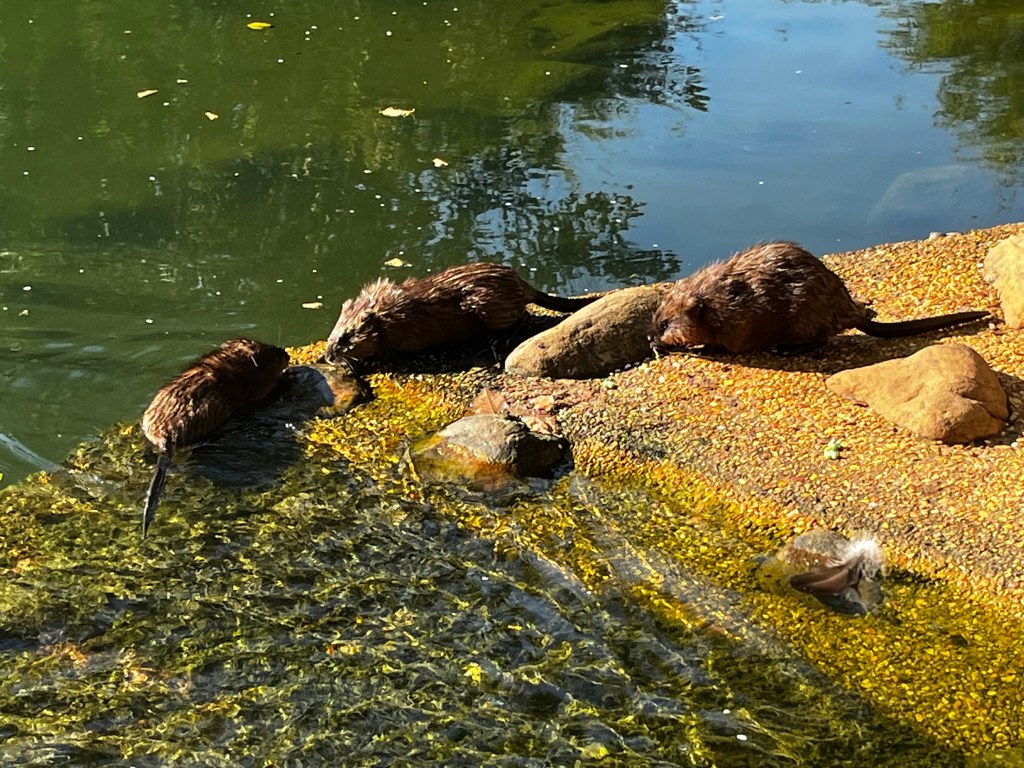Quacking the case: Public notices Big Spring Park dwindling duck population
Published 11:00 am Tuesday, August 30, 2022

- A group of muskrats at Athens Big Spring Park
Visitors to Big Spring Park in Athens may have noticed a reduction in the number of ducks. There have been many rumors and speculation as to why the numbers have dwindled, including blaming the healthy muskrat population at the pond. While a predator is believed to be involved, there are several known reasons and possible reasons for the decline.
Bert Bradford, Director of Cemetery, Parks, and Recreation for the city of Athens, has received several reports about a group taking some ducks from Athens Big Spring Park. “The social media posts indicate the group takes injured ducks, and that the group also took ducks from our park because of a natural predator. The posts indicate the group re-homes the ducks elsewhere.” according to a statement from the city of Athens.
Trending
Currently, there are no Pekin (white) ducks remaining at the park’s pond. The Waterfowl Enthusiasts at Big Spring’s (Webs) Facebook page describes the group as “A place for all things duck at Big Spring Park in Huntsville, AL,” and a post to the page from August 12 claims that the group was responsible for capturing the “last domestic duck at the Athens Big Spring Park.”
“Mr. Bradford contacted the city attorney who researched the issue. According to the city attorney, these ducks are not the property of the city of Athens. Athens Police can investigate animal cruelty cases, but the city does not have the legal authority to stop someone from taking the ducks or other wildlife to re-home them elsewhere,” the city of Athens said. “The city of Athens and Mr. Bradford have not asked anyone to relocate or remove the ducks.” The city does not have an ordinance governing the taking of ducks.
The reasoning Webs used for taking the duck from the park was the threat of a predator. Webs said on their Facebook, “Just two months ago, there were several domestics, including 6 Pekin. Sadly, they were all killed by an animal. This guy has been by himself for a couple of weeks. Yes, there are Muscovy ducks there, but domestics and Muscovies speak a different language and usually don’t make friends with each other.”
The News Courier was unable to find credible evidence suggesting that Pekin and Muscovy ducks can’t coexist together peacefully. According to Cornell University College of Veterinary Medicine, “When Muscovies and common ducks (including Pekin) are allowed to mate naturally, the fertility rate is usually very low.” They also explain that when Muscovies cross with common ducks, the resulting offspring are sterile.
While many of the ducks at the park are likely sterile, thus contributing to a decrease in ducklings, a natural predator is also contributing to the falling numbers. The city said, “Mr. Bradford’s crew found some deceased ducks and contacted wildlife officials about a natural predator in the park killing the ducks. Wildlife agreed to look into catching the predator.” Until the identity of the predator can be confirmed, the city declined to speculate on the species.
Many on social media have chosen to blame the death and decrease in numbers of the ducks, as well as fish, on the muskrats that also live in the pond. This is most likely a rush to judgement, as the muskrat’s diet is 95 percent vegetation. They will occasionally eat freshwater mussels, crayfish, or carrion of other small animals.
Trending
Schools of small fish were seen in abundance over the weekend as well as several large grass carp.
The natural predators of pond ducks (and muskrats) include fox, hawks, coyotes, raccoons, owls, domestic cats and dogs, herons, alligators, possums, and skunks. A great blue heron has been spotted flying over the pond within the last several weeks.
Another threat to the ducks are some of the visitors to the park, as just this past weekend The News Courier made the following observations at the park: children and adult men chasing and grabbing ducks, dogs chasing ducks, and multiple families feeding loaves of bread to the ducks despite signage educating guests on the risk of death to the ducks.
There can be many explanations for the decrease in the duck population at Big Spring Park, the least likely being muskrats. “Muscovy ducks are not native Alabama wildlife and do not ‘belong’ in the wild here. It is illegal to release them. They are allowed as pets and commonly kept as barnyard ducks, but are not a natural part of our landscape,” Marianne Gauldin with Alabama Department of Conservation and Natural Resources Division of Wildlife and Freshwater Fisheries said.






